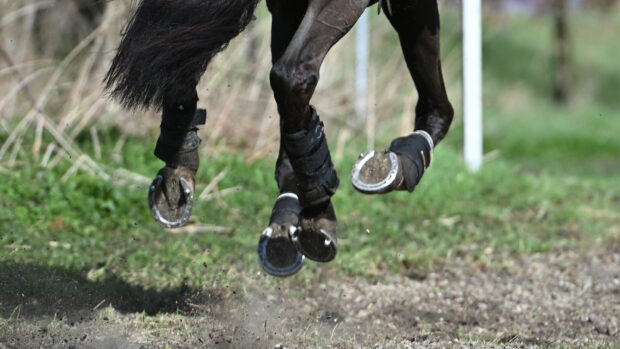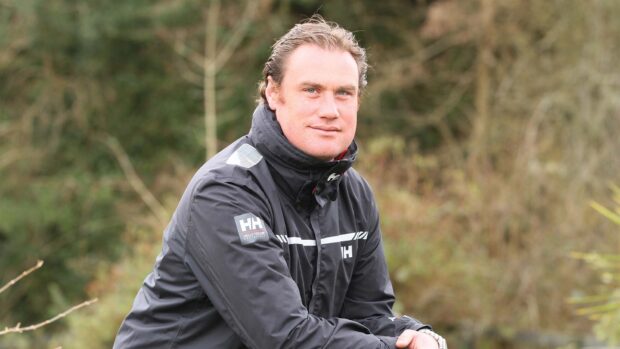Opinion
In the past 12 months I have written three obituaries for jockeys who have taken their own lives. They were 17, 34 and 36 years old. I didn’t know them personally, but I do know loss. I do know what it is to write about lives gone too soon and I do know what it is to talk to families and loved ones of those who are gone unexpectedly, whatever the circumstances of their deaths. There is nothing harder in this job and it will never, can never, should never be anything but the hardest thing I’ll ever do — and the sadness that goes with that pares to nothing in the face of those who did know them.
And I will always be ready to talk to those who want to talk about those who have gone and to push with my pen for anything to stop another person from feeling there is no other option and another family, another circle of friends, from going through that pain.
I look at my friends – both in and outside the horse world — and the brilliant people I’m lucky enough to chat with for work and I’m relieved I’m not writing about them. And then I feel the guilt of that — confused guilt because I wouldn’t wish that on anyone, but rather I wish it wasn’t something that had happened at all. Then comes the clearer feeling of guilt at wishing I was better at keeping in touch with people in my life and how I hope they know how much they matter, always. All on different places on their own paths in their own fields, but never not in the minds of those who know them. No matter what your brain is telling you, no person will ever not be missed.
There was so much more I wanted to go into in the news story in today’s issue of Horse & Hound and this week’s episode of The Horse & Hound Podcast looking at what racing is doing to protect jockeys’ mental health.
After feeling the sadness of Liam Treadwell’s death on 23 June, another young life lost, came anger. I didn’t know Liam beyond following his career, but I was angry at the sport I love that another one of its community who knew about, engaged with and used the support available, still felt they had no options left and that another young life was gone by their own hand.
I’ve spent the past few weeks trawling back through interviews, opinion columns, old press releases and news stories as well as academic research, looking back through recommendations and matching these up with changes, to see if I could find a weak spot anywhere and push for change, so this cannot happen again.
What I found gave me hope, not just in what is already happening, but in what is to come in the near future and a very collective push for change. “It’s good, but we want to be better — and we want to normalise the conversation” were very much the message across the board regarding the support — both reactive and proactive — as the Injured Jockeys Fund (IJF), Professional Jockeys Association (PJA), British Horseracing Authority (BHA) and Racing Welfare (for the wider workfoce) look to how to better protect the people — not a faceless “jockeys” or “industry”, but individual people with lives, histories, hopes, dreams and fears.
The volume of what is already happening, recent changes and what is coming in the near future would have filled the space I had at least three times over. To sum it up in one sentence, there is now a big push around the proactive and preventative side to try to stop issues from developing into deeper problems that need addressing in a reactive way.
In a nutshell, the IJF has plans to bolster its psychological support; there’s further hopes to expand mental resilience training; the PJA is looking at training those already in the weighing room to spot signs early and (crucially) know what to do next, while also looking at the potential for exit interviews and check-ins further down the line into retirement — a suggestion mooted by former Jockey Kevin Tobin on Luck On Sunday.
There are also bigger questions being faced surrounding how to ensure those coming into the sport are going to be able to cope with, what is by definition, a predominately losing occupation. The Jockeys Education and Training Series (JETS) continues to do excellent work in preparing riders for the future, but there is also the question over whether handling of retirement could begin sooner and be improved by the industry as a whole.
BHA chief medical advisor Dr Jerry Hill and PJA chief executive Paul Struthers both shared fascinating insight into the flip side of lockdown and the strange positives that have come out of that.
Restricting jockeys to one meeting a day means there is no longer a frantic dash between courses, which has been broadly welcomed, while no saunas (owing to potential infection risk) and an extra 3lb for all on the scales has helped others.
Dr Hill told me of one conversation he had recently where a jockey told him making the weight was the scale of a good day — now he found he was actually enjoying riding again. Others have told him of how they are making better decisions.
Mr Struthers recalled seeing the number for another rider flash up on his mobile — knowing what meetings were on that day and this person’s journey home from racing passed a course with an fixture that evening, he thought he was in for an earful. Instead the jockey told him how he was going to actually make it home in time to see his family instead. I’m speculating here, but I wouldn’t be surprised if some of these changes remain.
In a time where we are all going through enforced change — and when the industry has pulled together in an unprecedented way to restart the sport, that the same willingness and momentum continues to better the lives in the sport.
There is a collective desire and I hope this will mean, in another 12 months time, that I haven’t written another tribute piece for someone who felt there was no other option. Only time will tell.
To paraphrase the “rather hear your problems than listen to your eulogy” quote, I would forever rather hear about what could make life better than to write another obituary for someone gone too soon.
We continue to publish Horse & Hound magazine weekly during the coronavirus pandemic, as well as keeping horseandhound.co.uk up to date with all the breaking news, features and more. Click here for info about magazine subscriptions (six issues for £6) and access to our premium H&H Plus content online.




